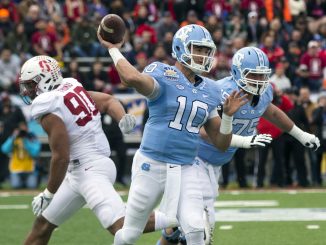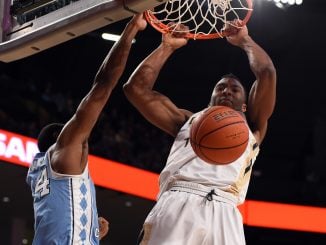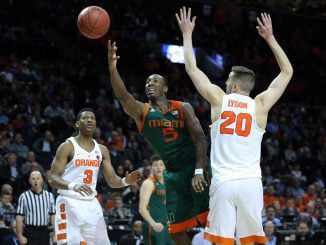
In early August, Florida Senator Marco Rubio sent out a tweet declaring “The NCAA is out of control.” The wrath towards the collegiate governing body organization stems from University of Central Florida kicker Donald De La Haye being ruled ineligible because of his refusal to capitulate to demands to stop monetizing his YouTube channel.
Because of the popularity of De La Haye’s videos, the kicker is believed to be raking in a couple thousand dollars a year from ad revenue. The horror! Presumably to mitigate negative publicity, the NCAA believed it worked towards a compromise. They stated they will allow De La Haye to make money off his videos as long as the content did not relate in any way to athletics. Instead, De La Haye stuck by his conviction that the elaborate NCAA rules and regulations need reforming and the kicker walked away from college football.
The NCAA remains committed that it will not allow pay for play for student athletes. However, almost everybody is aware that the hypocrisy under the current system is astounding.
Colleges and universities can make millions of dollars off a single sought after recruit, while the compensation for the athlete is technically limited to tuition, room, and board. Television deals have pushed athletic revenue into the billions for some of the biggest conferences. CBS continues to pay the Southeastern Athletic Conference $55 million annually for the top game of the week and the conference championship game. The SEC raked in over half a billion dollars in revenue during the first year of the College Football Playoff and through its own ESPN SEC Network in 2014-15, which amounted to an over 60 percent increase from the previous year. The current CBS contract for March Madness which exists until 2024 is more than $10.8 billion.
Annual compensation for some of the top conference commissioners exceeds more than three and a half million dollars. Seventy-two NCAA FBS head coaches make over $1 million annually and twenty make over $4 million. Jim Harbaugh is paid over $9 million at the University of Michigan in Ann Arbor. Even a handful of collegiate assistant coaches currently have annual salaries that exceed $1.5 million.
Notable American Civil Rights author and UNC-Chapel Hill alumnus Taylor Branch has called the NCAA a cartel, adding it’s an organization run by “bogus principles.”
“Slavery analogies should be used carefully. College athletes are not slaves,” wrote Branch in Atlantic Magazine in 2011. “Yet to survey the scene—corporations and universities enriching themselves on the backs of uncompensated young men, whose status as “student-athletes” deprives them of the right to due process guaranteed by the Constitution—is to catch an unmistakable whiff of the plantation.”
As corporate entities and many universities become wealthier, the exploitation only becomes more pronounced. And while some athletes in high profile sports receive extra under the table benefits and compensation, the vast majority are cut off from even a pittance of profit sharing.
While there are many reasonable proposals for reform to an unfair system, one is to simply allow more room for the free market. Just over Ninety-eight percent of college football and basketball players will not be professionals. For almost all athletes, including those in non-revenue sports, college is the last opportunity to make any money on their athletic ability. Athletes should be able to receive compensation for selling their likeness, image, or by offering up endorsements for products or services. If a receiver or defense linemen at Carolina or NC State wants to endorse a car dealership or a sports store, they should have that right under a free and fair market. Just make any business dealings transparent with full disclosure of payments. Fans can decide if they want to cheer for an athlete with a $3 million shoe contract.
The NCAA likes to respond that measures like this threaten the purity of the game and the sacred nature of amateurism, which is laughable given the amount of money that flows through the whole system. Branch likes to say “if you’re concerned with athletes, deal with their rights.” His point serves to emphasizes they virtually have none now and that must change.



